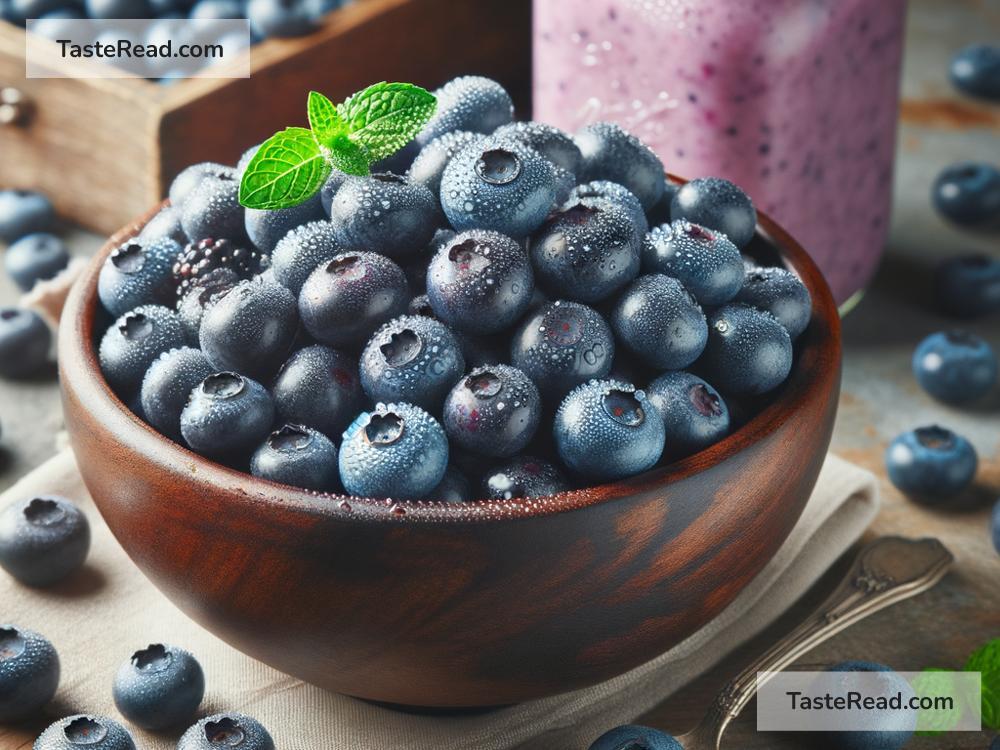The Truth About Blueberries and Antioxidants: Are They Really a Superfood?
Blueberries have often been hailed as a “superfood,” packed with antioxidants, vitamins, and nutrients. You’ll see them promoted on health websites, in smoothie recipes, and even in skincare products as the secret to staying youthful and healthy. But is all the hype around blueberries and antioxidants true? Let’s take a closer look—using simple language—to uncover the truth.
What Are Antioxidants, Anyway?
Before diving into blueberries, let’s talk briefly about antioxidants. Antioxidants are substances that protect your body’s cells from damage. Every day, your body is exposed to unstable molecules called free radicals. Free radicals can come from pollution, sunlight, cigarette smoke, or even your body’s normal processes, like when you digest food or exercise.
If free radicals build up, they can damage your cells and contribute to aging, heart disease, cancer, and other health problems. Antioxidants neutralize these free radicals, preventing harm and keeping your body running smoothly.
In other words, think of antioxidants as the body’s defense team against damage caused by free radicals.
Blueberries: Nature’s Little Powerhouses
Blueberries are one of the richest sources of antioxidants. These tiny, blue-purple berries contain special compounds called polyphenols, particularly anthocyanins. Anthocyanins give blueberries their vibrant color and are the main type of antioxidant associated with their health benefits.
Besides antioxidants, blueberries are full of essential nutrients like vitamin C, vitamin K, and fiber. They’re also low in calories—about 80 calories per cup—making them a smart snack choice for anyone trying to stay healthy.
But if blueberries are so rich in antioxidants, does that mean eating them will solve all your health problems? Let’s dig deeper.
Do Blueberries Fight Aging?
Many people claim that eating blueberries will keep you looking young forever. While it’s true that the antioxidants in blueberries help protect your skin from free radical damage (a major factor in aging), eating blueberries alone won’t magically erase wrinkles or stop the aging process. Aging is influenced by many factors, including genetics, lifestyle, and environment.
That said, regularly including blueberries in your diet can improve overall skin health. Their vitamin C may help boost collagen production, keeping your skin firm and glowing. So, while they’re not a fountain of youth, they’re definitely a smart choice for supporting healthy skin.
Can Blueberries Prevent Diseases?
There’s plenty of research that links the antioxidants in blueberries to improved health and disease prevention. Studies suggest that eating blueberries may lower your risk of heart disease because they help reduce inflammation and improve blood circulation. They can also support brain health, potentially slowing down cognitive decline as you age.
However, while blueberries are good for you, they’re not a cure-all. Eating blueberries alone won’t prevent cancer, diabetes, or Alzheimer’s disease. Instead, you should think of them as one piece of the puzzle. A healthy, balanced diet that includes a variety of fruits and vegetables—blueberries included—combined with regular exercise and good sleep habits will make the biggest difference for your long-term health.
How Many Blueberries Should You Eat?
Eating blueberries is great for your health, but does that mean you should eat them by the bucketful? Not necessarily. A serving size of blueberries is about one cup, which provides plenty of antioxidants and nutrients. Eating more won’t hurt you, but keep in mind that variety is key. No single food can give you all the nutrients your body needs, so make sure to mix blueberries with other fruits, vegetables, and healthy foods.
Fresh, Frozen, or Dried?
If you’re wondering whether fresh, frozen, or dried blueberries are better, the answer is—they’re all good! Fresh blueberries are naturally delicious and make a great addition to salads, cereal, or yogurt. Frozen blueberries are just as nutritious as fresh ones, and they’re often cheaper. You can blend frozen berries into smoothies, bake them into muffins, or eat them as a snack.
Dried blueberries are fine too, but pay attention to whether they’re sweetened. Some brands add sugar to dried blueberries, and eating too much sugar isn’t good for you. Unsweetened dried blueberries or fresh/frozen options are usually the healthier choice.
The Bottom Line: A Superfood, But Not a Miracle
Blueberries are undeniably nutritious and packed with antioxidants, making them a fantastic addition to almost any diet. They support heart health, brain health, and skin health, and they’re easy to incorporate into your meals. However, it’s important to remember that blueberries aren’t magical. They’re not going to cure diseases or stop aging entirely, but they can definitely be part of a healthy lifestyle.
Instead of thinking of blueberries as the “superfood” that will fix all your problems, think of them as a small but mighty player in the larger game of good health. Combine blueberries with other fruits, veggies, whole grains, and lean protein to maximize their benefits.
So, go ahead—grab a handful of blueberries and enjoy their sweet, tangy flavor. Your body will thank you for it!


